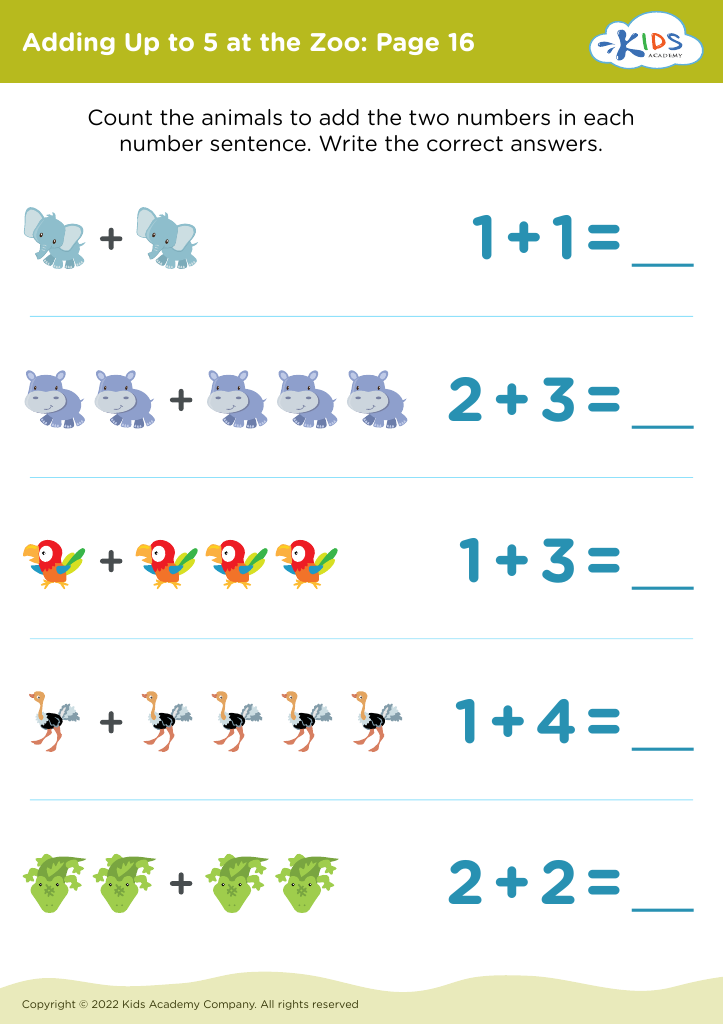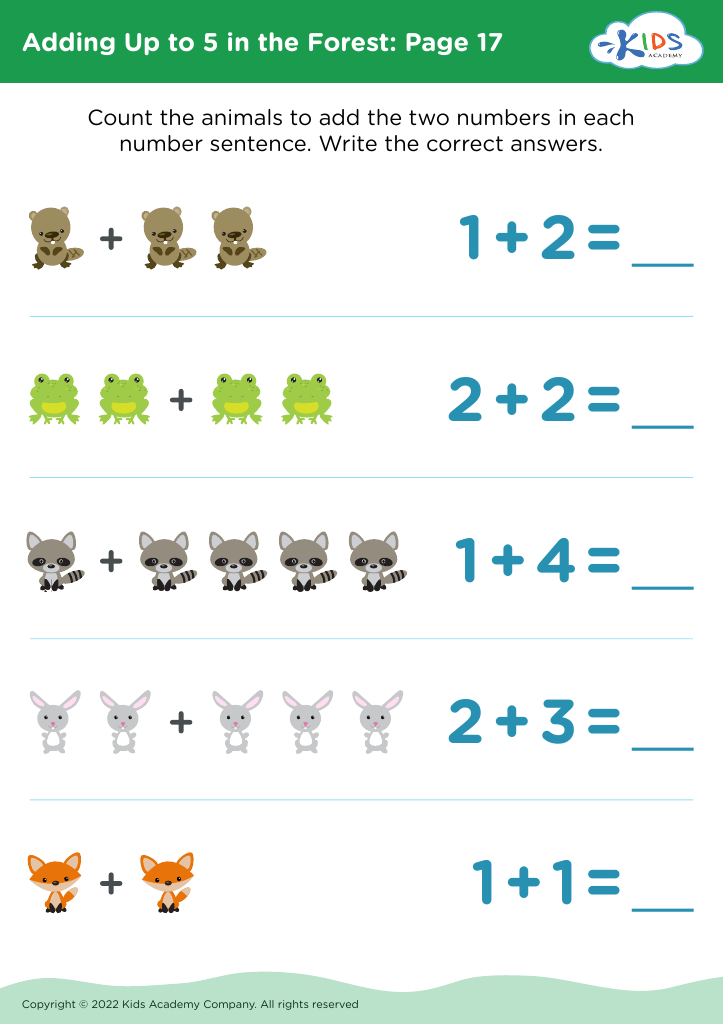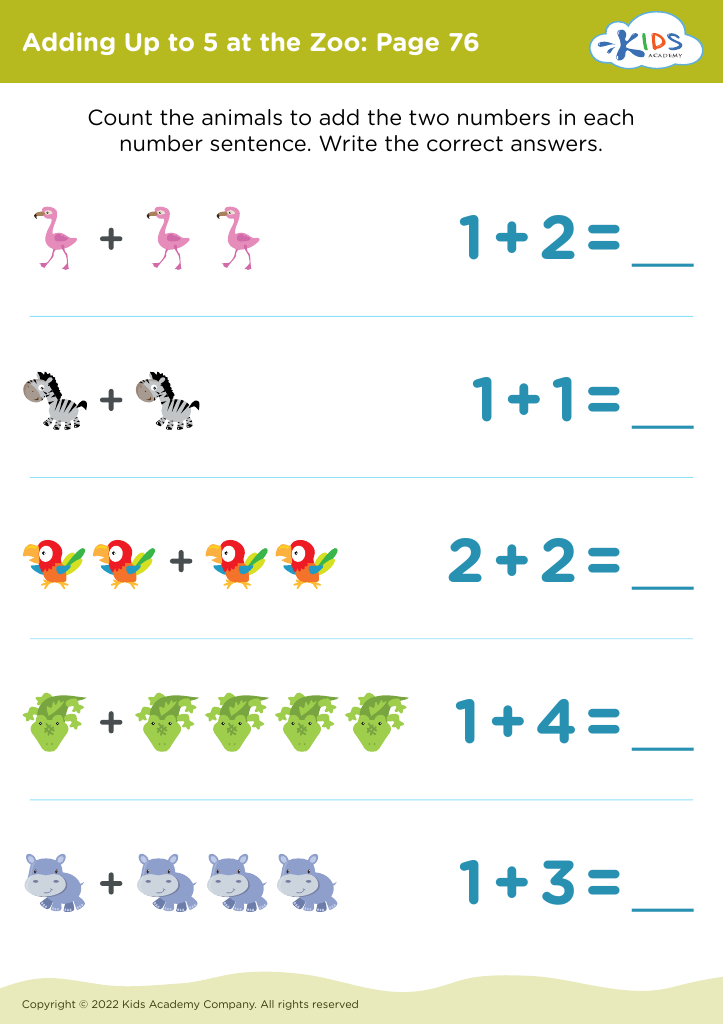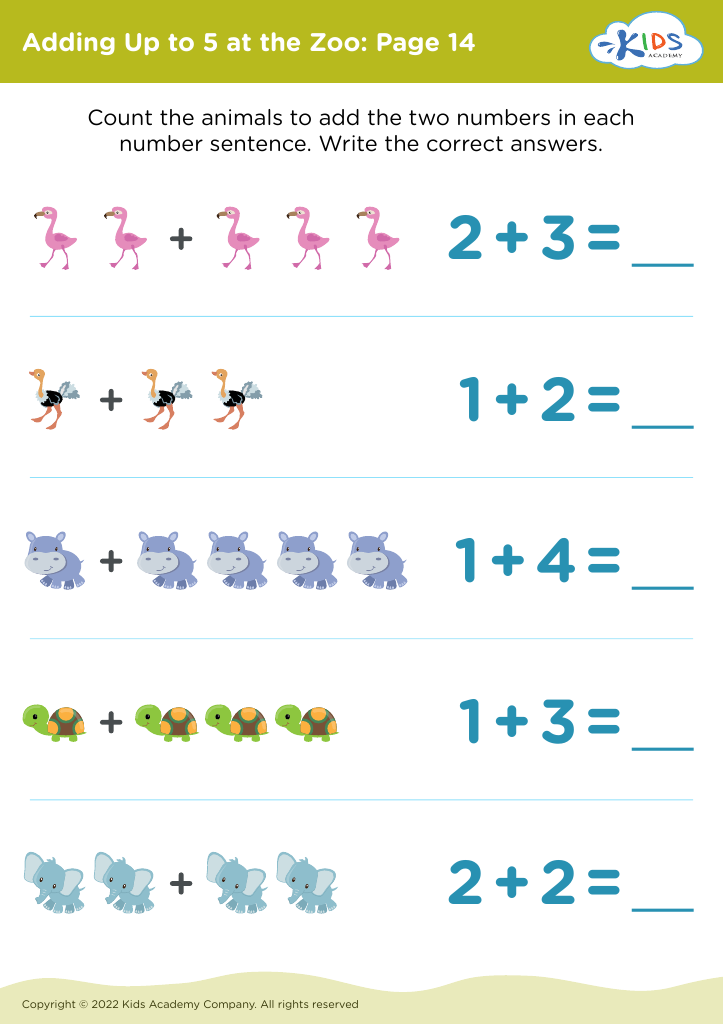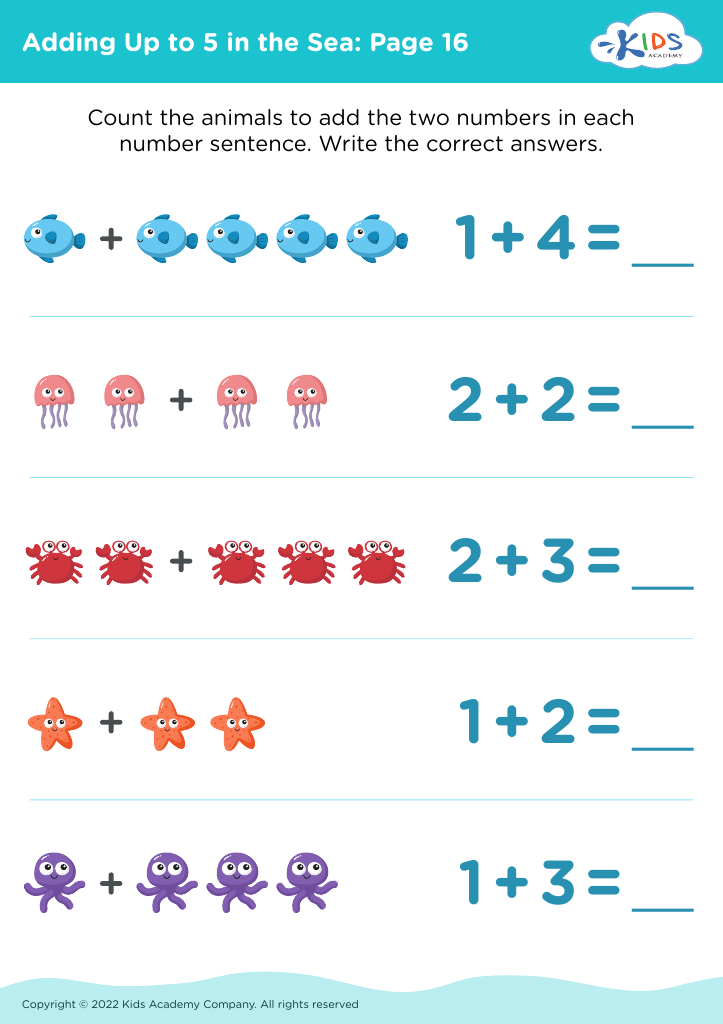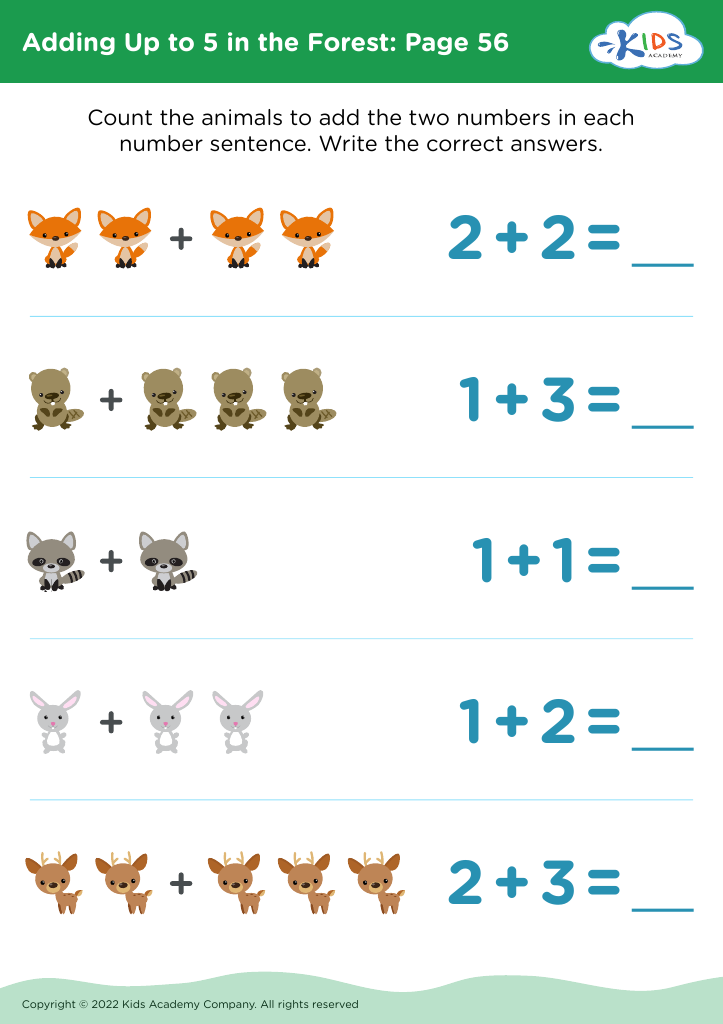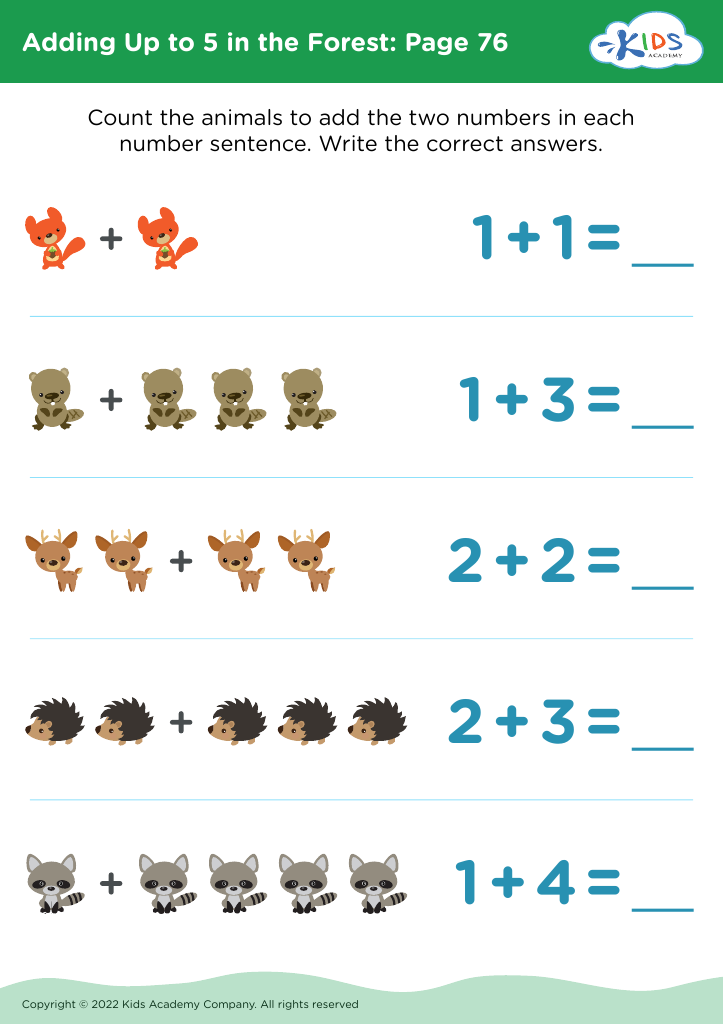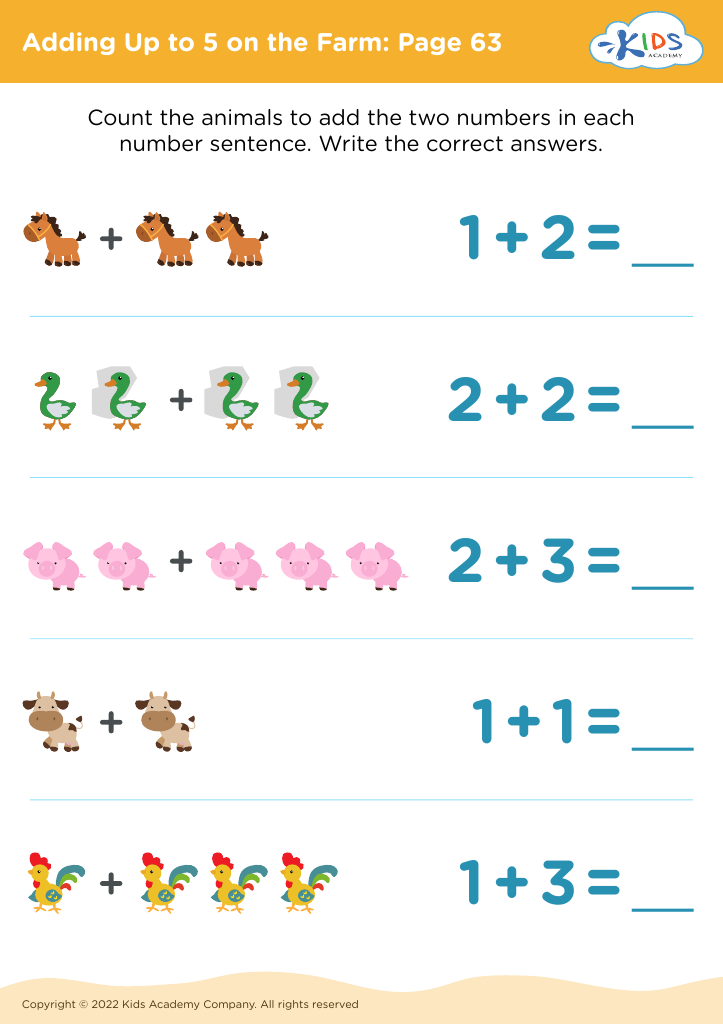Problem Solving Addition Worksheets for 3-Year-Olds
11 filtered results
-
From - To
Introducing our "Problem Solving Addition Worksheets for 3-Year-Olds," designed to build foundational math skills in a fun and engaging way. Each worksheet offers simple, age-appropriate addition problems that cultivate logical thinking and problem-solving abilities. With vibrant illustrations and easy-to-follow instructions, these printables capture young learners' imaginations while reinforcing essential counting and adding skills. Ideal for home or preschool use, our worksheets ensure toddlers develop a love for math early on. Explore our collection today and watch your child thrive as they embrace the joy of learning through playful problem-solving activities!
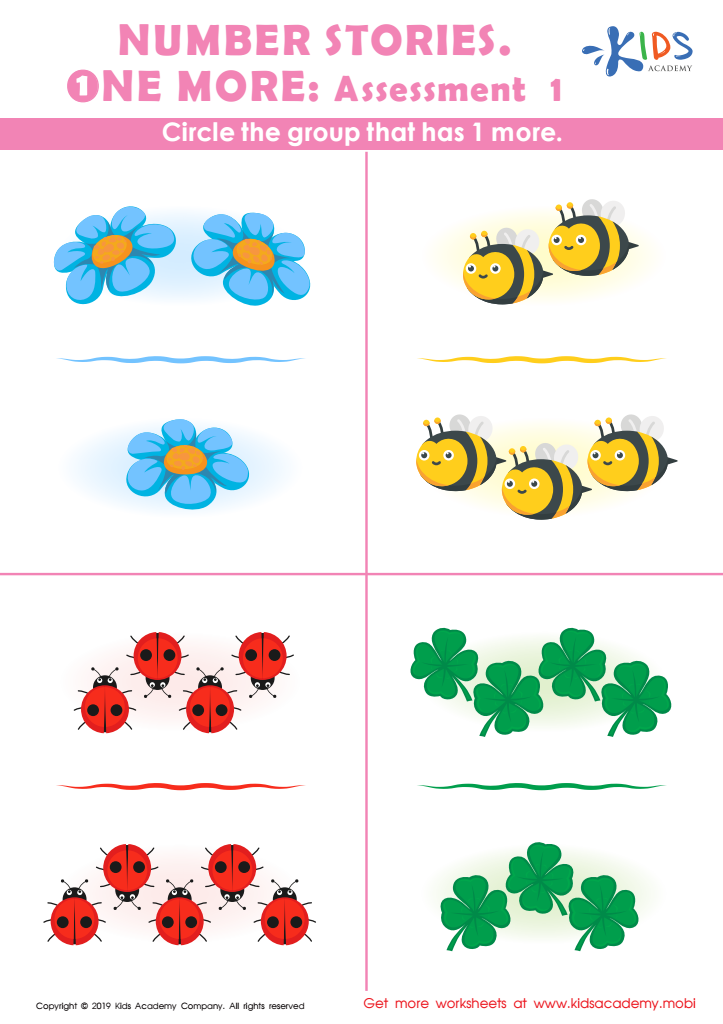

Number Stories One More – Assessment 1 Worksheet
Introducing problem-solving addition skills to 3-year-olds is essential for several reasons. At this age, children's brains are highly receptive and adaptable, making it an excellent time to build foundational skills that will benefit them in the long run. By engaging in simple addition problems, young children develop critical thinking and analytical skills, paving the way for more complex mathematical concepts later on.
Moreover, problem-solving tasks promote a growth mindset. When children tackle challenges and discover solutions, they build confidence in their abilities. This sense of accomplishment can foster a positive attitude toward mathematics and learning in general, reducing anxiety about these subjects in later years.
Additionally, early exposure to problem-solving and addition introduces children to the language and concepts of math in a playful, non-threatening manner. This familiarity can translate into better performance and understanding as they progress through their school years.
It's also an opportunity for social interaction and development. Activities that involve problem-solving and addition often require cooperation, sharing, and communication. These social skills are just as important as academic ones, contributing to a well-rounded development.
Engaging young children in problem-solving addition activities doesn't just prepare them academically; it also helps develop their confidence, social skills, and a lifelong positive relationship with learning.
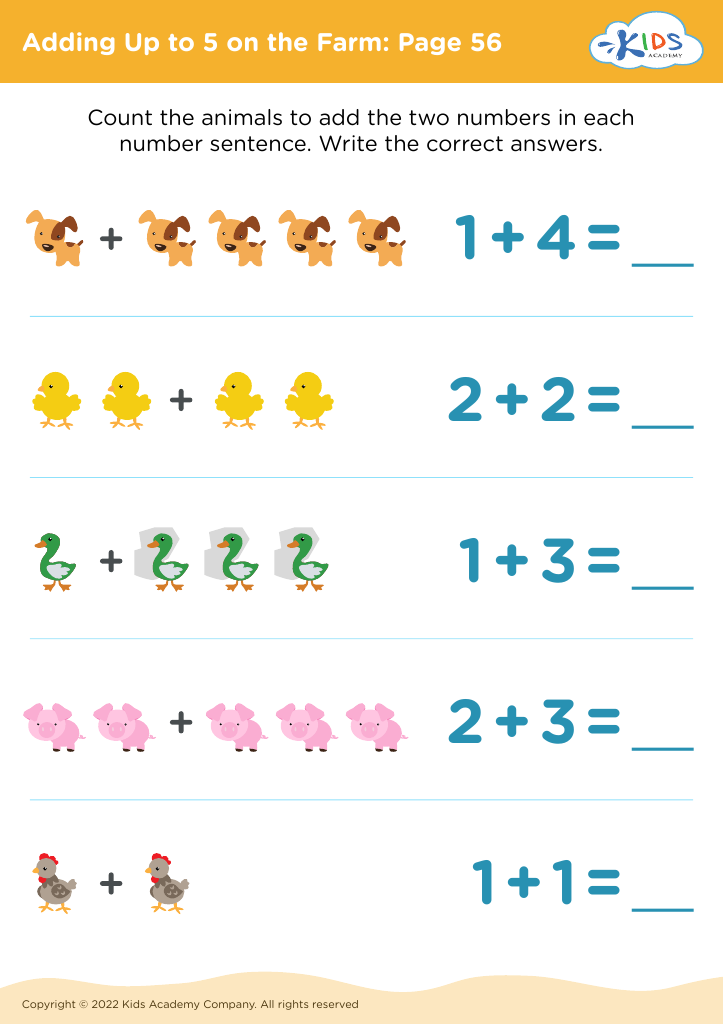
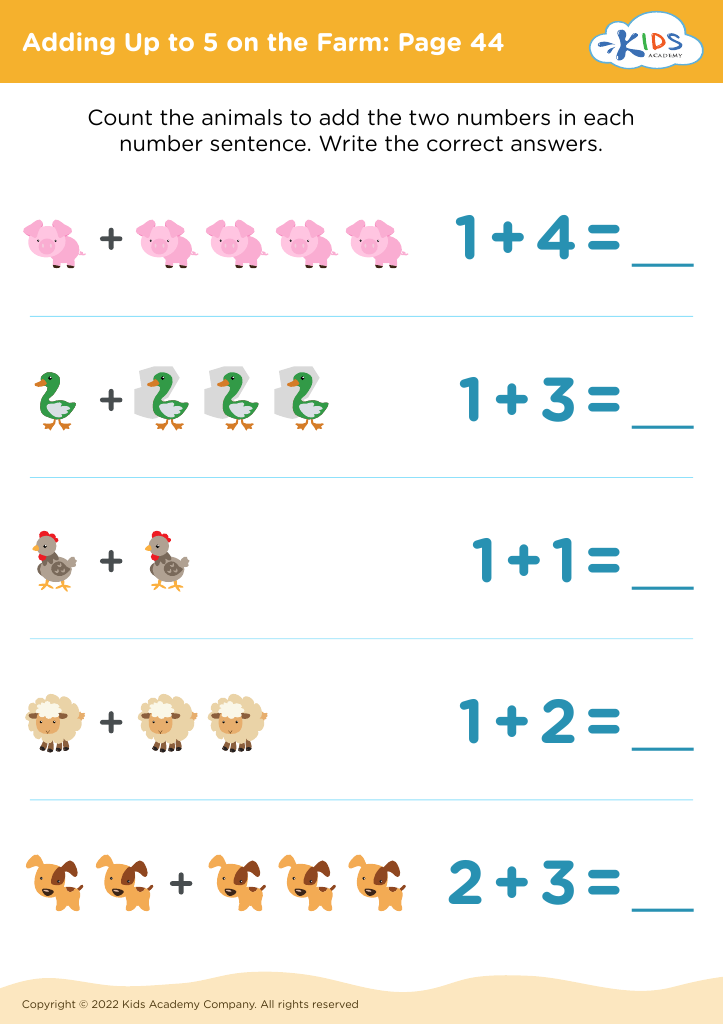
 Assign to My Students
Assign to My Students
